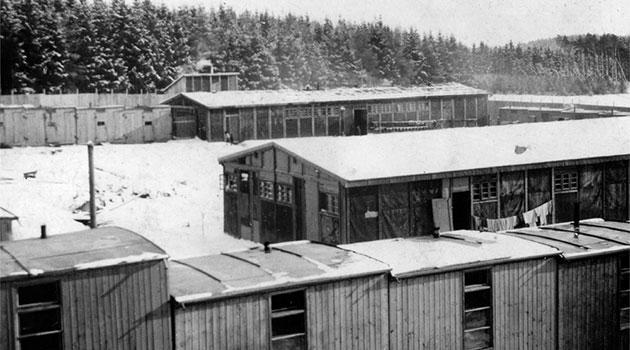Czech local archive publishes digitalized records online of the former concentration camp for Romani people at Lety

News server Denik.cz reports that the State Regional Archive (SOA) in Třeboň, Czech Republic has released on its website its archival collection of digitalized documents about the WWII-era concentration camp called the Zigeunerlager (in Czech, Cikánský tábor) at Lety; the digital collection was created in collaboration with the Institute of the Terezín Initiative in Prague as part of a project called the “Database of victims of the national socialist persecution of ‘gypsies‘”. “Several years ago we agreed with the Institute of the Terezín Initiative in Prague that we would like to make this collection publicly accessible as part of a project called the “Database of victims of the national socialist persecution of ‘gypsies‘” supported by Bader Philanthropies,” the director of SOA Třeboň, Václav Rameš, told Denik.cz.
“The Institute digitalized this collection and experts from our archive then adapted it for our conditions,” the director said, adding that the archival documents provide basic information about the creation and existence of all of the camps serving different purposes and of different levels of significance that appeared on the territory of Lety municipality, especially between 1940 and 1943, as well as up until 1945, when the Second World War ended. “There are, for example, lists of the gendarmes ordered to serve at the camp and above all there is documentation about those imprisoned there,” the director said.
“The personal files of each prisoner are preserved, as is documentation on each working group at the camp,” the director said. “There is medical data, especially about the beginning and the course of the epidemic of typhus.”
“The collection also includes documentation of the building of the camp and its equipment, as well as of its burial ground,” the director said. “The files contain alphabetically-organized lists of prisoners during all phases of the camp’s development.”
“There are separate lists of men and women,” the director said. “Part of the collection includes sketches of the camp itself, small maps of the burial ground, the floor plan of the administrative building of the camp, the floor plan for the personnel building, and photographs of the prisoners.”
“The photographs do not officially document life at the camp, though – they were taken for the personal purposes of the photographers at a time when the camp was not yet a fully repressive facility,” the director said in his interview. The collection contains 137 items, including 19 books, nine registration records, eight accounting books, 31 cartons of files and two card indexes.
“Altogether the archival collection measures almost five regular or archival meters of material,” the director said. The overall aim of the project is to contribute to the development of the documentation of Romani victims of the Holocaust whose fates are associated in any way with the territory of what is today the Czech Republic, to accumulate and systematize the data about each human being who was persecuted and victimized on the basis of Romani origin during the Second World War, to make available the accumulated data and material for the purposes of education, investigation and research, and to thereby raise awareness of the Holocaust of the Roma as part of the modern history of the Central European Region.
